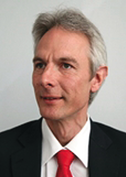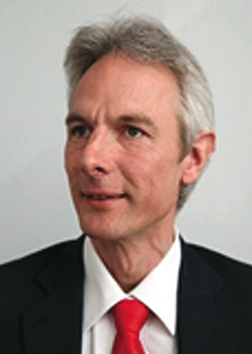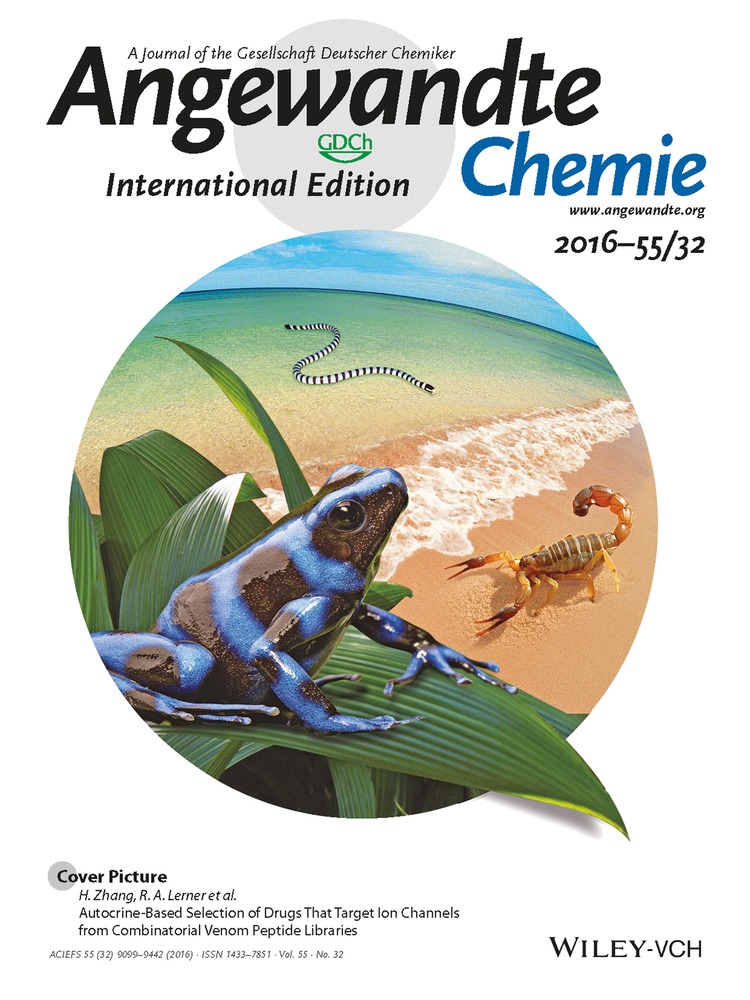The Active Field of Nuclear and Radiochemistry: Not Just Nuclear Power
Graphical Abstract
“ … The number of universities teaching nuclear and radiochemistry has decreased, not least as radiochemistry is erroneously linked to the use of nuclear power … Radiochemistry is essential for a variety of fields, including radiopharmaceuticals, as well as the management of radioactive waste … we are facing a lack of specialists in the area of radiation protection …” Read more in the Editorial by Clemens Walther.
Many of us became acquainted with nuclear and radiochemistry (NRC; hereafter referred to as radiochemistry) during our university education. However, the depth of this knowledge varies strongly. While some institutions offer comprehensive modules including practical exercises, many students experienced radiochemistry only in the lecture theater, or, even worse, could not study the subject at all. In the institutions that are still active, however, there is a constantly high demand from students, sometimes clearly exceeding the available teaching capacity. In addition, my personal experience shows that training in nuclear chemistry, or internships at a research reactor, usually are remembered very positively. This raises the question of what are the reasons for this heterogeneous situation and how will it develop in the future.

Nuclear chemistry does not lack sensational discoveries and Nobel Prizes. Examples include the discovery of polonium and radium by Marie Curie in 1898, the pioneering work of Frederick Soddy on the chemistry of radioactive substances, and his investigations on the occurrence and nature of isotopes, for which he was awarded the Nobel Prize in 1921. The 1938 discovery of nuclear fission by Hahn and Straßmann was performed by nuclear-chemical methods, and 2015 marked the 75th anniversary of the discovery of the element plutonium by Glenn Seaborg.
George de Hevesy, who died 50 years ago, is considered the founder of modern nuclear chemistry. In 1913, together with Friedrich Paneth, he developed the tracer method marking chemical elements by the addition of extremely small amounts of their radioactive isotopes. He also introduced neutron-activation analysis, which is still the method of choice for many ultra-trace analytical applications. But many of these discoveries date back a long way.
What is the situation today? In its latest brochure, the Nuclear Chemistry Division of the Gesellschaft Deutscher Chemiker (GDCh; German Chemical Society) lists 21 German universities and other research centers that teach nuclear chemistry. But this figure accounts for only 18 professorships because of crosslinks, with, for example, Helmholtz Research Centers. The number of universities teaching radiochemistry has significantly decreased. Vacant chairs were often not reoccupied or were realigned, so they were at least partially lost for radiochemistry. But what are the causes?
Firstly, radiochemistry is erroneously linked to the use of nuclear power. The need for nuclear chemical education is questioned in the light of Germany's phaseout, and not only by politicians. Furthermore, radiochemistry research and teaching requires provision and operation of nuclear chemical laboratories, mostly in controlled areas. As is the case for handling of all kinds of hazardous substances, these laboratories require special licensing and their operation is cost- and labor-intensive. In times of tight budgets, the operation of such laboratories is a constant topic of debate.
Such a cost-intensive training can only be justified by demonstrating continuous need for skills and knowledge in radiochemistry. In the pioneering days after the discovery of nuclear fission and the subsequent euphoria for anything nuclear, this question was easily answered. But who needs radiochemistry nowadays?
The answer is: a variety of fields, although this is often not immediately obvious. The more prominent applications include the life sciences, especially radiopharmacy, where Germany is one of the world's leading countries. Without radiochemistry, production of radionuclides, their use for therapeutic radiopharmaceuticals and radiodiagnostics would not be possible. Single photon emission computer tomography (SPECT) and positron emission tomography (PET) are important for primary diagnosis of diverse diseases as well as for clinical monitoring. In the course of drug development, radiolabeled compounds help to study the behavior of drugs in the body.
Nobody questions the central role of radiochemistry for the investigation of the heaviest known elements. Transactinide elements (Z>104) are produced in particle accelerators with production rates of as little as only one atom per day. By making considerable technical efforts, nuclear chemists can determine the chemical properties of these elements and check if they fit in the periodic table as expected in terms of reactivity, metallic character, bonding behavior, or volatility.
Less obvious, but no less important, is the role of radiochemistry for example in geosciences, as radionuclides are useful for dating. Standard nuclides comprise the uranium and thorium decay chains as well as 40K, 14C, 10Be, and 26Al. Their ultra-trace-level activity concentrations are determined by accelerator mass spectrometry, which requires nuclear-chemical methods for prior isolation of the elements of interest and elimination of interference.
Radioecology describes the chemical reaction and migration of radionuclides in the environment. This topic concerns the consequences of accidents such as in Fukushima and Chernobyl, which occurred five and thirty years ago, respectively. The emissions of the reprocessing plants in Sellafield and La Hague lead to a continuous increase of, for example, 129I in central Europe all the way to the Arctic Ocean. Partially elevated uranium concentrations and strongly disturbed radioactive equilibria exist in the former uranium-mining sites in Saxony. Production of fossil fuels and use of geothermal energy face the challenge that natural radioactive material (NORM) accumulates in the production plants—a significant radiation-protection issue.
Another pressing social issue that requires radiochemistry is the management of high-level radioactive waste. Though performed on industrial scales in France and the UK, chemical reprocessing of spent fuel is prohibited in Germany. However, an integral part of Germany's “Energiewende” (energy transition) and the phaseout of nuclear power is the search for safe disposal options for the remaining radioactive waste. Comprehensive safety analysis is required for all types of radioactive waste and disposal options, be it long-term storage at the surface, or operation of a repository deep underground. The chemical behavior of radionuclides in the environment and possible migration pathways must be analyzed. This task for radiochemistry must be recognized in the context of preventative research that can benefit society with the help of modern methods and specialized laboratory infrastructures.
But how representative is the German situation in the European context? A survey in 22 EU Member States carried out by the integrated project CINCH II (Cooperation in Education and Training in Nuclear Chemistry; see www.cinch-project.eu) draws a very heterogeneous picture. More than 70 universities and research institutes offer radiochemistry training. Some 45 % of these institutions offer a degree in nuclear chemistry, and the remainder offer radiochemistry courses as part of the program in chemistry, physics, environmental engineering, and nuclear engineering. Training often includes only certain aspects of radiochemistry according to the focus of the institution.
It is not surprising that countries operating strong nuclear industries also have a high demand for nuclear chemists: the number of institutions and graduation rates in these countries are above average. In first place is France, with ten institutions that produce several hundred graduates a year and a strong network between universities, research centers, and energy suppliers. The Institut de Radioprotection et de Sûreté Nucléaire (IRSN) plays an important supervisory role, and also conducts research. Nuclear education is coordinated by the Institut National des Sciences et Techniques Nucléaires (INSTN). In Germany, education in radiochemistry is offered by a similar number of universities and Helmholtz Research Centers. However, the provision of equipment and number of graduates is lower than in France. The situation is quite good in Belgium and the Czech Republic (six and five institutions, respectively). In some countries, such as Sweden and Finland, only a small number of institutions conduct radiochemistry research and education, but do so at a very competitive level. With only four universities that offer radiochemistry courses, the situation in the UK is amazingly weak considering the significant nuclear applications (not only the energy suppliers, but also the National Nuclear Laboratory and—as in France—the military). On the other hand, the use of nuclear energy is not necessarily a prerequisite for good radiochemical education, as demonstrated by Norway where 25–30 radiochemistry master students graduate per year. All surveyed European institutions assessed the job opportunities for radiochemists as good to very good. Some countries complain about loss of skills, many state a balanced relationship between supply and demand, but in no European country there is oversupply and risk of unemployment for radiochemists.
But back to Germany. Radiochemical knowledge is still required in many professional fields. My own experience at the University of Hannover and the Karlsruhe Institute of Technology confirms that a degree in radiochemistry opens up a rich field of possible careers; not only in chemical research and radiopharmacy, but also in related areas such as radiation protection. In Germany alone, there are currently more than 120 000 radiation protection officers, and the need is increasing. In addition to the medical sector and high schools, the decommissioning of nuclear installations and waste disposal will need expertise in radiochemistry and radiation protection for decades to come. This not only applies to research and energy suppliers, but also to regulatory authorities. We are thus facing a massive lack of specialists, which is certainly an irresponsible situation from a socio-political point of view. The loss of skills is already in full swing, however this is needless since we do not lack talented and enthusiastic young people who want to study in this field. There also is no shortage of future jobs. The problem is simply that the need for training qualified personnel is negated. There have been initial incentives by the Bundesministerium für Bildung und Forschung (BMBF; Federal Ministry of Education and Research) and the EU (NRC Euromaster Certificate and recent kickoff of the NRC Network) to strengthen radiochemistry, but this can only partly compensate for the lack of resources, laboratory courses, and university staff. There is still time to counteract the situation, but we should not wait too long.





